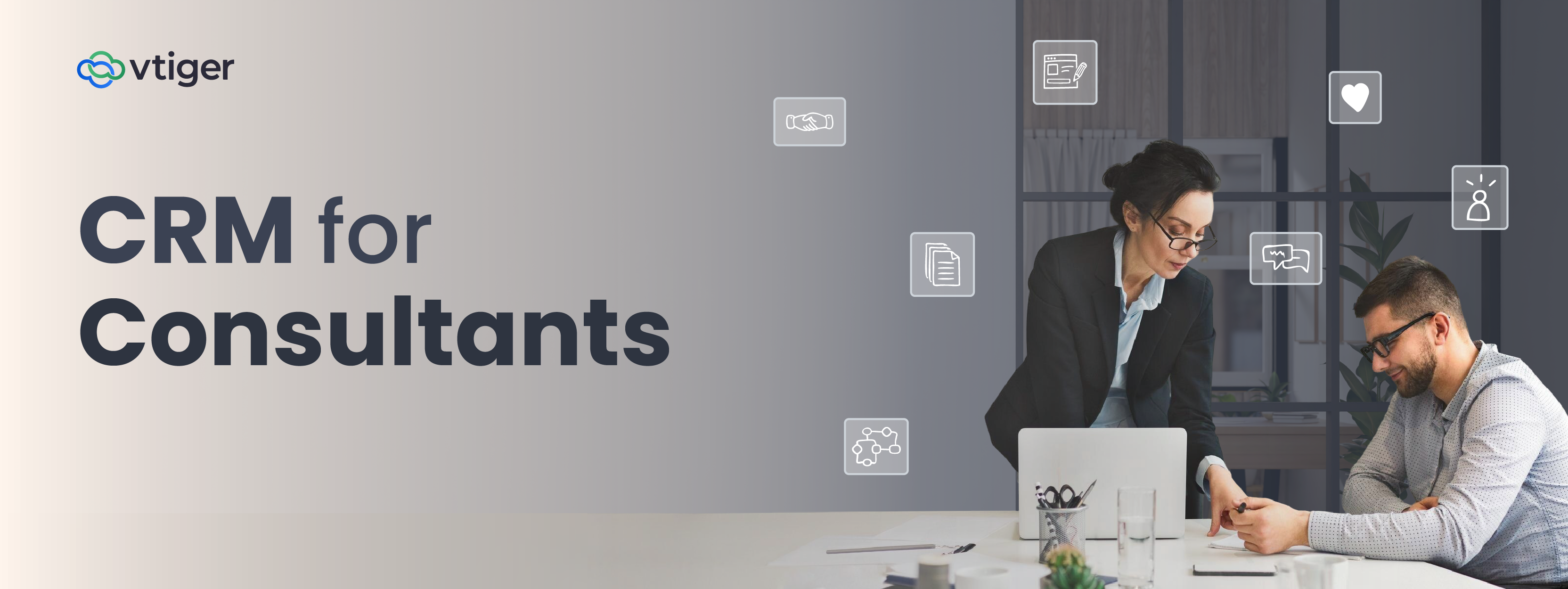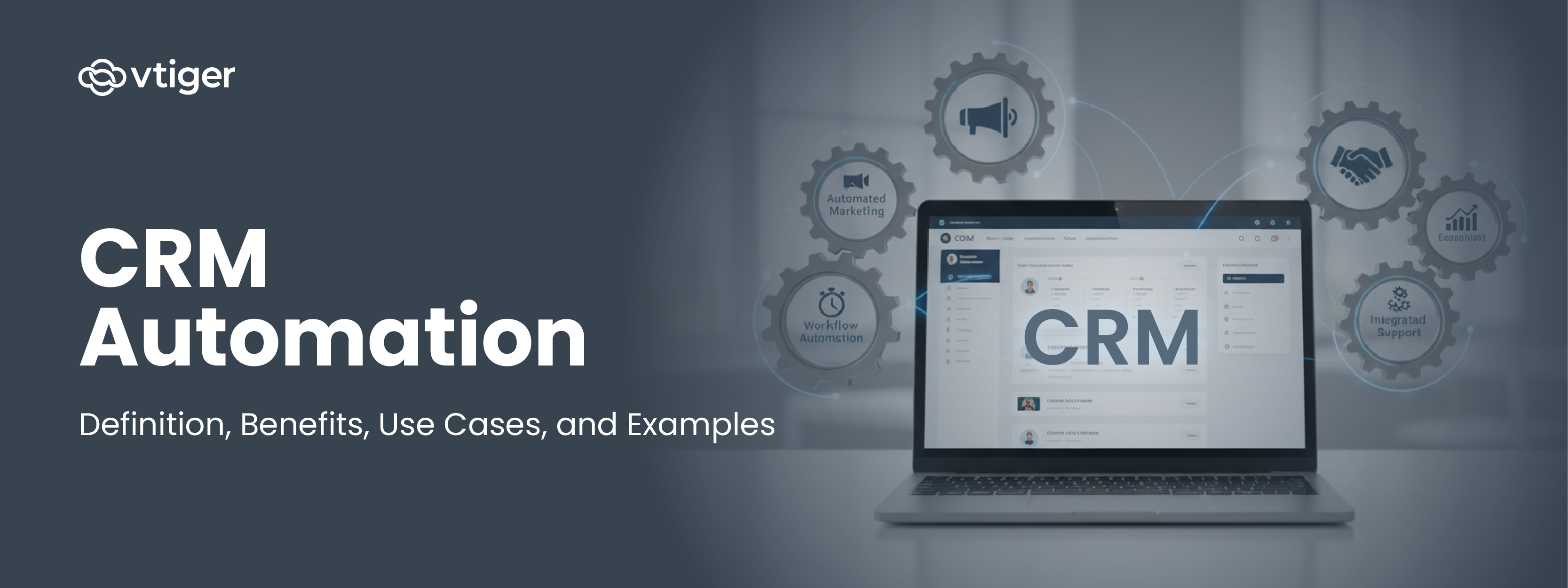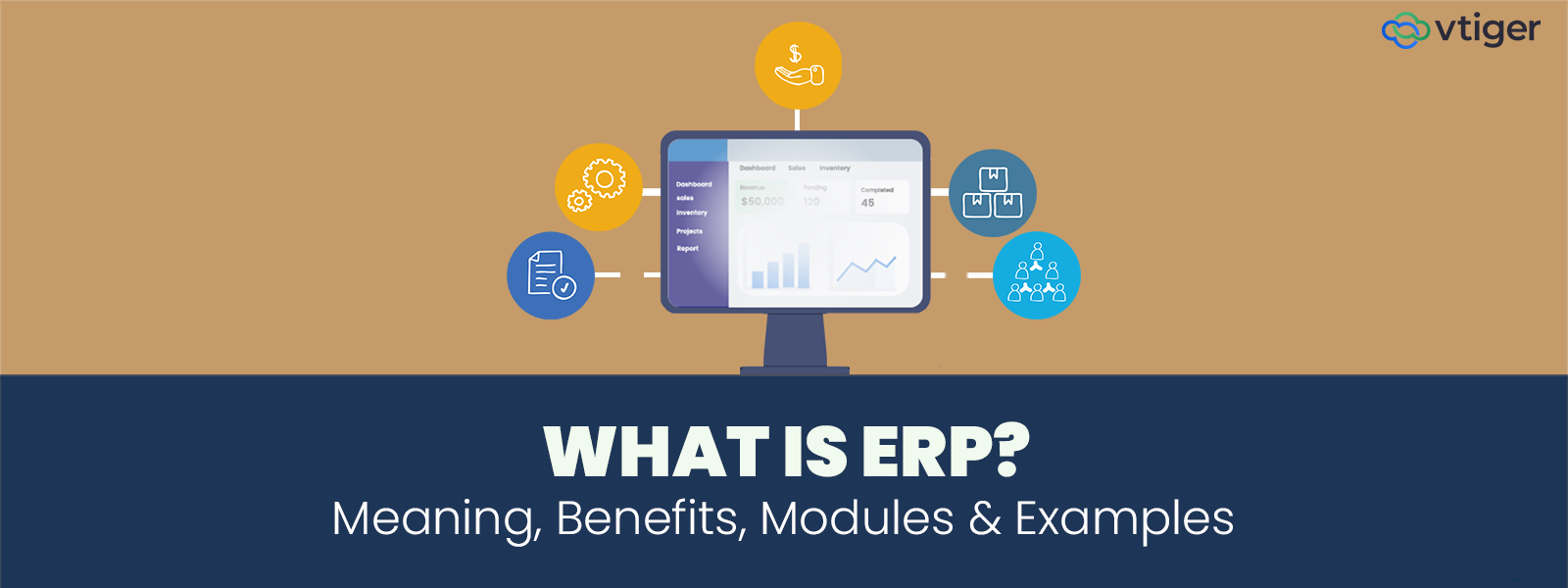What is CRM for Consultants?
CRM for consultants involves a customer relationship management system that assists consulting experts in managing client relationships, sales funnels, communication processes, and overall operations from one centralized platform. However, in contrast to general CRM software utilized by large organizations, CRM for consultants is created with the adaptability and ease that independent consultants, small advisory firms, and expanding consulting practices require.
You could be:
- A freelance strategy consultant managing several projects
or….
- A mid-size business consulting firm overseeing numerous client accounts
Using a hyper-personalized CRM as per your workflow will enhance your organization’s productivity and scalability. Consider it as your helper that tracks every lead, notifies you of follow-ups, and stores all your client information in one location, allowing you to concentrate more on advising and less on administrative tasks.
Why Consultants Need a CRM System Today
Consultants today are juggling multiple clients, channels, and touchpoints. As the consulting space becomes more competitive, staying organized and responsive is not a luxury but a necessity. A CRM for consultants helps bridge this gap by offering a structured system that takes care of everyday chaos.
Here are the common challenges consultants face that a CRM can solve:
- Difficulty tracking leads or inquiries from multiple platforms
- Forgetting to follow up with prospects on time
- Losing important client information across emails, calls, or Excel sheets
- Repeating tasks manually, like sending reminders, meeting invites, or invoices
- Not having a clear view of the client history or deal status
A CRM system organizes these elements into a dashboard, so consultants can spend more time building relationships and less time sorting files. Some firms use open source CRM for hyper-personalized support and to streamline workflow.
How CRM for Consultants Works – A Step-by-Step Overview
As a consultant, your time is money. Manual follow-ups, proposal delays, or scattered client information can cost you both. Here’s how a CRM tailored for consultants helps you stay sharp, close faster, and grow smarter:
1. Capturing and Organising New Enquiries
When a potential client reaches out, whether through a referral, email, or contact form, the CRM allows for immediate registration of their details. Consultants can assign tags or categories to keep new enquiries structured from the start.
2. Reviewing and Prioritising Leads
The next step involves reviewing client requirements, budget expectations, and relevance to your service offerings. Based on this, consultants can decide whether to move forward with an introductory discussion or defer the lead for later follow-up.
3. Managing Initial Engagement
During early conversations, key discussion points, challenges shared by the client, and expectations are noted. These records help maintain continuity across meetings, especially when managing multiple inquiries.
4. Planning Internal Workflows
Once a project is confirmed, the CRM can be used to assign internal tasks, set timelines, and define checkpoints for progress. This helps maintain transparency and accountability, particularly when working within a team or across multiple clients.
5. Monitoring Project Status
Throughout the engagement, consultants can update project phases or client status. Whether it is a strategy session, implementation milestone, or feedback review, progress can be documented and accessed centrally.
6. Post-Engagement Documentation
At the close of a project, final deliverables, feedback summaries, and important decisions are recorded in the CRM. This ensures all relevant information remains available for future reference, audits, or renewals.
7. Long-Term Relationship Management
Even after a project is completed, the CRM supports future interactions by maintaining a complete history of client engagements. Consultants can return to past records to prepare for follow-up discussions or respond to future service needs.
Explore what is CRM, in case you want to introspect on what sort of client servicing aid you are actually looking for.
Core Features of CRM for Consultants
Choosing a CRM as a consultant isn’t about loading up on features. The primary aim should be finding the right tools that match how YOU work. Here are the core features that matter most for independent consultants, small firms, or advisory teams:
1. Contact Management That Reflects Context, Not Just Details
Beyond just storing email IDs or phone numbers, a good CRM lets you add meeting notes, service preferences, and even billing information under each client’s profile. This helps keep conversations and context together, especially when juggling 5–10 active projects or retainer clients.
2. Lead & Deal Tracking That Mirrors Your Sales Cycle
Track each prospect’s movement from initial inquiry to signed contract. You can log exploratory calls, sent proposals, negotiation stages, or even “follow-up after Q3” tags. This makes it easier to revisit cold leads later or forecast revenue from potential projects.
3. Integrated Appointment Scheduling for Client Ease
Let clients pick available time slots using calendar syncs. Instead of back-and-forth emails to fix a call, the CRM allows direct booking. It is especially useful when you work across time zones or with recurring calls for coaching, reviews, or workshops.
4. Task & Reminder Automation
Consulting prioritizes reliability over expertise. A CRM can help by scheduling reminders for client updates, project milestones, or periodic check-ins. It ensures that important interactions or opportunities are not missed, especially during busy periods.
5. Built-In Proposal & Invoice Tools
No need to switch between Word docs, PDFs, and email drafts. With basic templates, you can send proposals that align with your brand and pricing. Invoices, too, can be generated directly from deal entries. This makes billing more systematic and less prone to delays.
6. Email Integration for Seamless Communication Logs
Connect your email (and in some cases, even messaging platforms) to keep all conversations attached to client records. This is useful when you need to reference older threads or track how long it typically takes for clients to respond or close.
7. Custom Reports to Understand What’s Working
Not all consulting services yield the same results. With reporting tools, you can compare revenue from strategy sessions vs. implementation work, assess client churn, or monitor average deal size. It’s about making informed decisions rather than just going by guesswork.
Unique CRM Needs of Independent vs. Agency Consultants
CRM needs differ based on the scale and structure of your consulting setup. Here’s a simple comparison:
| Features | Freelance Consultants | Boutique Firms | Enterprise Consultancies |
| Client Management | Simple contact tracking | Team-based client handling | Department-level segmentation |
| Pipeline Complexity | Basic lead stages | Multiple pipelines for services | Advanced forecasting and sales stages |
| Team Collaboration | Mostly solo use | Small teams need role-based access | Cross-functional access with hierarchy |
| Customization | Minimal needed | Moderate forms & templates | High custom workflows, compliance |
| Budget | Free or low-cost plans | Mid-tier pricing | Enterprise licensing with support |
Whether you are working solo or leading a firm, selecting a CRM that matches your workflow is key.
Benefits of CRM for Consultants
For consultants operating, using a CRM offers multiple long-term advantages:
1. Better Time Allocation Across Active and Prospective Clients
Consultants often manage multiple leads while servicing ongoing projects. A CRM allows clear separation between incoming enquiries and active engagements, reducing context-switching and allowing focused time on each.
2. Timely Follow-Ups Without Manual Data Retrieval
When proposals are under review or clients request time to decide, follow-up timelines often stretch. CRM tools help schedule and track these without depending on manual reminders or inbox searches.
3. Improved Responsiveness During High-Volume Periods
During peak periods such as financial year closings, campaign launches, or quarterly strategy planning, response times may suffer. CRM systems help track pending responses, ensuring no enquiry or client update goes unnoticed.
4. Reduced Gaps in Communication Across Long-Term Engagements
Many consulting relationships span several months or require periodic interventions. With a CRM, all past exchanges, key decisions, and deliverables remain accessible, helping consultants resume discussions even after long gaps.
5. Clarity When Working With Multiple Stakeholders
In cases where a consultant interacts with multiple decision-makers within a client organisation, a CRM ensures that communication remains consistent. Notes, contact details, and action points tied to each stakeholder are clearly recorded.
6. Visibility Into Delayed Projects or Unresponsive Clients
Consultants often face delays in feedback or approvals. A CRM helps identify which clients or projects are stagnant, allowing for timely escalation or realignment of resources.
7. Clear Documentation During Retainers or Recurring Contracts
For consultants offering monthly or quarterly services, tracking task delivery, meeting frequency, and performance inputs becomes essential. A CRM provides continuity in documentation and helps manage scope over time.
8. Easier Handover or Internal Review
In cases where the consultant operates as part of a team or hands over deliverables to another partner, the CRM offers a full record of progress. This reduces miscommunication and ensures aligned service delivery.
9. Strengthens Trust Through Operational Consistency
When clients experience timely communication, accurate tracking, and well-organised documentation, it reflects operational discipline. Over time, this builds trust and positions the consultant as a reliable partner.
CRM Implementation Tips for Consultants
Adopting a CRM for your consulting business does not have to be complicated. Here are simple tips to make the transition smooth:
1. Evaluate CRM Fit Based on Delivery and Communication Structure
Before selecting a CRM, assess how client work is assigned and managed within your firm. For example, if associates handle research and client updates while partners lead discussions, choose a CRM that supports role-based access and multi-level task tracking. Avoid solutions that are too generic or built solely for sales teams.
2. Use Trial Periods to Simulate Actual Client Workflows
During the free trial phase, simulate internal workflows such as onboarding a new client, assigning research tasks, and tracking follow-ups. Involve both junior and senior team members to test how the CRM fits into real scenarios, not just technical features.
3. Assign Clear CRM Roles Based on Responsibility
Designate responsibilities within the CRM. For instance:
- Partners may use the CRM for reviewing pipelines and forecasting.
- Project Leads or Consultants can manage client records, tasks, and meeting logs.
- Operations or Admin Teams can handle data hygiene, tool integration, and report generation.
This helps ensure accountability across the system from the beginning.
4. Integrate Communication and Scheduling Tools Early
Early integration of email, calendars, and client scheduling tools ensures smoother adoption. This enables consultants to log calls, schedule reviews, and track deliverables without manual duplication or separate reminders.
5. Standardize Data Entry for Consistency
Create firm-wide standards for entering client names, tags, project stages, and notes. This reduces confusion when accounts are handled by more than one consultant or during internal transitions. A CRM only adds value when data is reliable and easy to interpret.
6. Plan Internal Training Based on Roles
Training should be role-specific. Junior consultants may require guidance on note-taking and task tracking, while senior staff may need training on reporting, pipeline review, or dashboard usage. Avoid a one-size-fits-all training session.
7. Maintain an Ongoing Data Hygiene Process
Assign monthly or quarterly reviews of client records, closed projects, and overdue tasks. Whether handled by the operations team or a designated CRM lead, this process ensures long-term system reliability and prevents clutter.
8. Align CRM Usage with Review and Reporting Cycles
If your firm conducts weekly stand-ups or monthly reviews, ensure the CRM supports this cadence. Encourage teams to log updates before meetings so the CRM becomes a trusted source of project status and not just an afterthought.
How to Choose the Right CRM for Your Consulting Business
Choosing a CRM is not just about features. It’s about aligning the tool with your delivery model, engagement type, and operational structure. Use the following factors as evaluation checkpoints:
1. Budget
Instead of focusing only on pricing tiers, evaluate the CRM’s value against your billing structure. For consulting firms that charge clients on a monthly basis or by project milestones, choose platforms like Vtiger that offer billing automation, cost tracking, and support for specific compliance elements.
2. Scalability
A consulting practice grows in two ways—by expanding its client base or diversifying its service offerings. Your CRM must be able to handle new verticals, project types, and additional users without needing a complete re-architecture. Look for support for modular features like onboarding workflows, approval chains, and user-role hierarchies.
3. Integration Support
Consultants often juggle multiple channels like email, virtual meetings, document sharing, and financial coordination. Ensure your CRM integrates natively with tools such as Google Workspace, Microsoft 365, WhatsApp Business API, Zoom, or accounting software like QuickBooks. This reduces context-switching and keeps the engagement funnel consistent.
4. Ease of Use
Consulting teams work in high-urgency and low-latency environments. Your CRM should minimize administrative overhead, not add to it. Platforms with cluttered navigation or poorly mapped lead-to-project workflows can interrupt client delivery. Prioritize clean dashboards, fast-loading interfaces, and low training time for new team members.
5. Customer Support
For consulting firms with lean tech teams, CRM downtime or setup issues can cause delays in client onboarding or milestone tracking. Choose vendors that offer regional support, onboarding assistance, and proactive account managers who understand consulting delivery cycles and turnaround expectations.
6. Localization
Your CRM should reflect your business environment. From supporting different currency formats to integrating with e-invoicing portals and allowing deductions, consultants must ensure the platform adheres to local compliance. Localization should also include regional time zone settings, holidays, and workflow configurations aligned with statutory reporting.
FAQs – CRM for Consultants
CRM stands for Customer Relationship Management. For consultants, it refers to tools that help manage client interactions, track project timelines, handle invoicing, store communication history, and maintain an organized database of leads and clients.
Solo consultants can use CRM to streamline everyday operations. It helps automate follow-up reminders, track client stages, manage documents, and consolidate information in one system without the need for a large team.
Many CRM platforms offer pricing plans that suit small consulting setups. Tools like Vtiger CRM have free or low-cost tiers with features tailored for lean operations.
Yes, CRM tools allow consultants to schedule meetings, set follow-up tasks, and receive automated alerts. These features help ensure timely communication with clients and reduce the risk of missed opportunities.
Most modern CRM platforms are designed to be user-friendly. Consultants can use built-in tutorials, support documentation, and intuitive dashboards without needing technical expertise.
No, CRM is beneficial for consultants across business verticals. Whether you work in HR, IT, legal, finance, or marketing, CRM systems can help manage client workflows and project engagement efficiently.
Several CRM platforms support integration with commonly used tools like Gmail, Outlook, and WhatsApp Business. These integrations allow you to centralize all client communication within the CRM interface.
Initial setup usually takes a few hours. However, if you want to customize workflows, import existing data, or onboard team members, the complete setup process might take up to one or two weeks.
Yes, many CRM platforms include features that allow consultants to generate, send, and track proposals and invoices directly from the system, saving time and reducing reliance on separate tools.
Vtiger is a reliable option for consultants because it offers localized pricing, accessible customer support, and features that match typical consulting workflows in the particular market.



